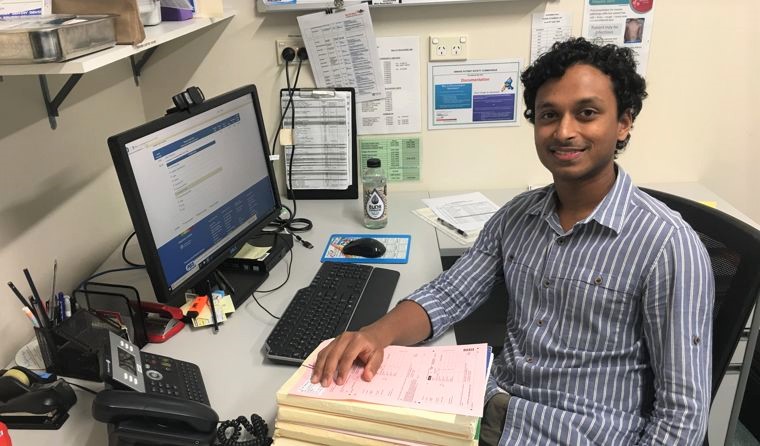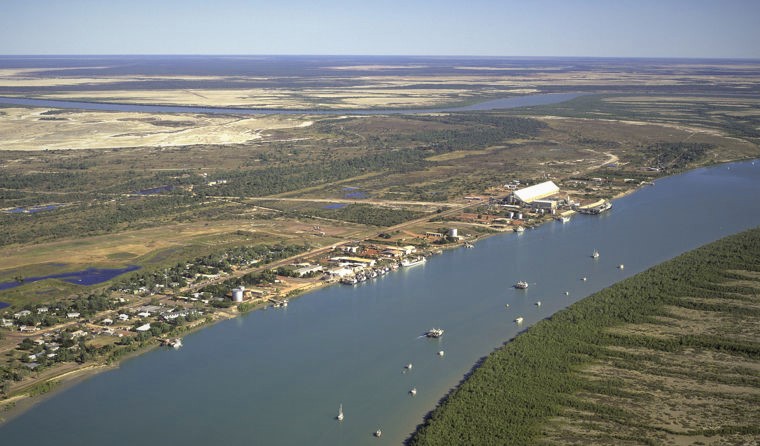News
Australia’s rural communities to benefit from $115m funding injection
The extension of the Rural Health Outreach Fund promises to bring doctors and health professionals to patients in remote areas.
 The funsing boost aims to provide rural and remote patients with access to a wider range of health services.
The funsing boost aims to provide rural and remote patients with access to a wider range of health services.
Announced by Regional Health Minister Mark Coulton, the $115 million boost to the Rural Health Outreach Fund (RHOF) is aimed at providing rural and remote patients with access to a wider range of health services in their community.
Minister Coulton said the fund will increase support for GPs, non-GP specialists, and allied and other health providers to visit rural, regional and remote areas, by subsidising the costs of travel, facility hire, and equipment-leasing.
‘This fund brings doctors and health professionals to patients, rather than the other way around, allowing many thousands of people to receive their healthcare closer to home,’ Minister Coulton said.
‘The Government’s decision to continue the outreach fund is good news for patients, families, businesses, and doctors in many areas which aren’t big enough to have a full complement of health services.’
More than 200,000 patients nationwide receive services each year under the RHOF, with a major focus on mental health, eye health, chronic disease management, and maternity and paediatric health.
Townsville GP Dr Sadheesh Rathnayake helps provide general practice and health services to rural and remote towns that do not have enough residents to support a doctor with funding from the RHOF.
For the past year, Dr Rathnayake and his team have been travelling twice a month to Karumba in Far North Queensland (population 531), bringing along psychology, podiatry, physiotherapy, exercise physiology, and skin cancer treatments and clinicians.
‘As GPs we identify the care provisions required to meet the different type of patient needs in the Karumba community,’ he said.
‘We normally bring two doctors and two allied health professional each time … [and] run a two-day clinic with an overnight stay in Karumba. Initially we were offering the outreach clinic every 2–3 months but due to popular demand we had to increase the frequency.
‘Yesterday I saw 25 patients during the day and we were full. While we do get bookings in advance, we also have walk-ins, so it is quite dynamic.’

Townsville GP Dr Sadheesh Rathnayake helps provide general practice and health services to rural and remote towns that do not have enough residents to support a doctor with funding from the RHOF.
Karumba is just one of a number of communities serviced by the RHOF-funded outreach program established by RACGP Rural Chair Dr Michael Clements, with Normanton, Doomadgee, Mornington Island, McKinlay and Gregory Downs also benefiting.
Dr Rathnayake became involved after meeting Dr Clements in 2018, and said the service has been met with ‘great appreciation’ from the community.
‘During my time at James Cook University in Townsville I was heavily involved in rural practice and placements. I always wanted to be a GP and serve rural communities,’ he said.
‘[Dr Clements] offered me the unique opportunity to join his practice and learn how to fly. I am now learning how to fly a plane and eventually hope to fly myself out and service rural and remote communities who are in need of a GP.
‘When we first started providing the service one of my patients said, “I’ve never seen the same doctor twice in all of my years in Karumba” … [so] it’s been a great opportunity to give back to the community and establish community connections.’
Aside from telehealth – which Dr Rathnayake said has been a boon for maintaining continuity of care while out of town – the RHOF has made a ‘real difference’ in terms of reaching otherwise underserved areas.
‘The fund allows me to travel out to Karumba and other towns where there are not enough residents to support a doctor,’ Dr Rathnayake said.
‘If we didn’t have access to it then we wouldn’t be able to service rural Australia [and] there is already a big shortage of GPs in these communities.’
Outside of Far North Queensland, the RHOF is also helping to provide:
- podiatry care in Broken Hill, New South Wales
- specialist cardiology visits to Kimba, Cleve, and Wudinna communities in South Australia
- accessible, bulk-billed gynaecological services in Wonthaggi, Victoria
- comprehensive health services to the Martu people in their remote Little Sandy and Gibson Deserts communities
- maternity and midwifery services in Palm Island, Queensland
- specialist ophthalmology to remote Northern Territory communities
- multi-disciplinary chronic pain management services in Tasmania’s North-West.
Richard Colbran, CEO of the NSW Rural Doctors Network (RDN), said RHOF services are also an opportunity to diversify and improve the skillsets among local health professionals, including GPs, practice nurses and Aboriginal and Torres Strait Islander health workers.
‘The transfer of specialised skills through outreach services remains a particularly valuable aspect of this program,’ he said. ‘It equips the local health workforce with skills needed to manage ongoing patient care from local primary care, community health and hospital settings.’
 With a population of just 531, the Far North Queensland town of Karumba has benefited from regular visits from Dr Rathnayake and a healthcare team.
With a population of just 531, the Far North Queensland town of Karumba has benefited from regular visits from Dr Rathnayake and a healthcare team.
As medical students and registrars also travel to remote areas covered by the RHOF, Dr Rathnayake said it also provides the next generation of medical professionals with invaluable exposure to rural medicine.
‘It’s great to get them out of their comfort zone to experience firsthand the extra logistics that make rural and remote general practice more interesting,’ he said.
‘We also bring medical students in their later years to get a taste of what a career in rural general practice is really like. They need to have these real experiences before they make a choice for their career.’
Recent research has shown regionally-based junior doctors
tend to be happier than their metro counterparts, while exposure to rural general practice training also
increases the likelihood of staying in the bush.
For Dr Rathnayake, the appeal of working in rural and remote communities is obvious.
‘Karumba is beautiful. At the end of the clinic we go down to the water to watch the sunset – it is one of the only places [in Queensland] where you can see the sun hit the water,’ he said.
‘Yesterday one of my patients asked me how the barramundi burger I had for lunch was, because she was the one that made it for me. You don’t often get the opportunity to get to know your patients and develop those same kinds of relationships with patients as a metro GP.
‘It [also] provides me with the opportunity to get out of my comfort zone and practice real medicine. In these communities we are outside the safety of a metro hub where we have easy access to specialists and colleagues to help out.
‘I am out in the centre and it is just me and the patient.’
Log in below to join the conversation.
rural general practice Rural Health Outreach Fund
newsGP weekly poll
Health practitioners found guilty of sexual misconduct will soon have the finding permanently recorded on their public register record. Do you support this change?